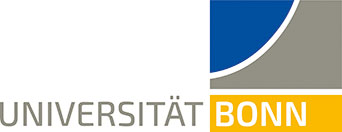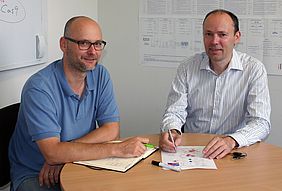The international consortium of the new European research project SYSCID (“A systems medicine approach to chronic inflammatory disease“) including two scientists from the LIMES Institute of the University of Bonn aims to develop a personalised medicine approach for inflammatory bowel disease, rheumatoid arthritis and systemic lupus erythematosus. The project coordinated by Kiel University in Germany (CAU) receives a total funding of 14.4 million Euros for a period of five years. Academic and industry partners from nine different countries join forces to achieve the ambitious goals of the project which has started at the beginning of 2017.
With a lifetime prevalence of over ten percent in the EU, chronic inflammatory disease (CID) poses a major health care burden to modern society. “Our vision is to develop a prediction framework for disease outcome and choice of treatment strategies. With many new targeted therapies coming to the market, we need the right therapy at the right time,” said Dr Philip Rosenstiel from the Institute of Clinical Molecular Biology at Kiel University and scientific coordinator of the SYSCID consortium. “Our approach combines several biomarker layers from the epigenome to the microbiome, but also aims to investigate more sophisticated tools, such as single cell analysis.”
The new epigenetic markers could be more significant than inflammation markers in the blood which have been used so far. As these ‘traditional’ markers also increase in patients with a common cold or elevated temperature, they cannot always be allocated clearly.
Part of the initiative are two scientists from the LIMES Institute of the University of Bonn, Dr. Joachim L. Schultze and Dr. Marc Beyer, who aim to include novel genomic approaches, including single-cell transcriptomics, into the molecular understanding and diagnostic approaches for these chronic inflammatory diseases. “The analysis of single immune cells within the inflamed tissues could give us valuable insight into the underlying disease pathology” said Dr. Schultze from the Genomics & Immunoregulation Unit of the LIMES-Institute “and could help us to better stratify patients before initiation of therapies”. Integral part of the undertakings in Bonn will be the joint Platform for Single Cell Genomics and Epigenomics at the German Center for Neurodegenerative Diseases and the University of Bonn (PRECISE) headed by Dr. Schultze. “Breaking the disease down to its fundamental unit, the single cell, could provide the breakthrough the field has been waiting for over the last years” underlined Dr. Beyer. “Particularly, the long-standing collaboration between the University of Bonn and the CommaSoft AG from Bonn could be extremely helpful to translate this into easy-to-use software packages also useful for clinical diagnostics.”
SYSCID will use dense clinical sampling and molecular phenotyping to analyse longitudinal patient cohorts and obtain a deeper understanding of the immunological network changes associated with response and non-response to current treatment regimes. Unlike current therapeutic interventions which mainly alleviate the symptoms, SYSCID aims to develop a therapeutic strategy that will eventually offer a first causal therapy. The consortium targets new therapy approaches by ‘reprogramming’ disease through epigenome editing. “Assuming that the development and course of a disease are related to long-term epigenetic alterations, it makes sense to target the very root of the disease,” Rosenstiel said.
SYSCID will build on previous and ongoing research activities by partners and international initiatives such as the International Human Epigenome Consortium (IHEC) with the aim of exploiting already collected and established patient data and enabling their utilisation for the development of new clinical applications. Moreover, the project will create training opportunities and career perspectives for young European scientists with its findings serving as a blueprint for future development of precision medicine in other fields.
Contact:
Prof. Dr. Joachim Schultze & PD Dr. Marc Beyer
LIMES-Institut, Genomik & Immunregulation
Universität Bonn
Tel.: 0228/73-6 27 87
E-Mail: j.schultze@uni-bonn.de & m.beyer@uni-bonn.de
Prof. Dr. Philip Rosenstiel
Projektkoordination
Institut für Klinische Molekularbiologie Universität Kiel
Tel.: 0431/500-1 51 11
E-Mail: p.rosenstiel@mucosa.de
Dr. Vera Schneider
European Research and Project Office GmbH (Eurice)
Projektmanagement
Tel.: 0681/959-2 33 85
E-Mail: v.schneider@eurice.eu




